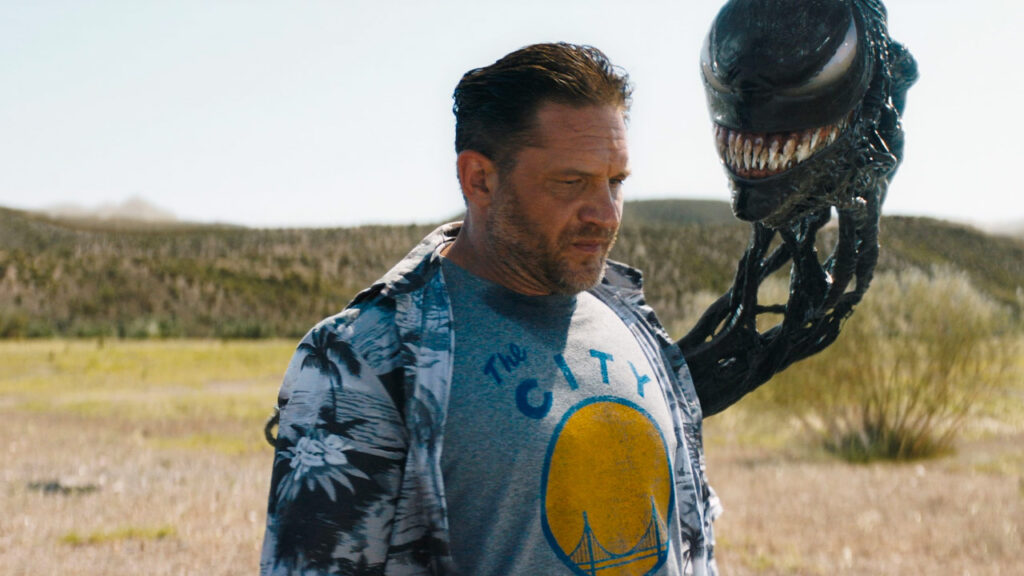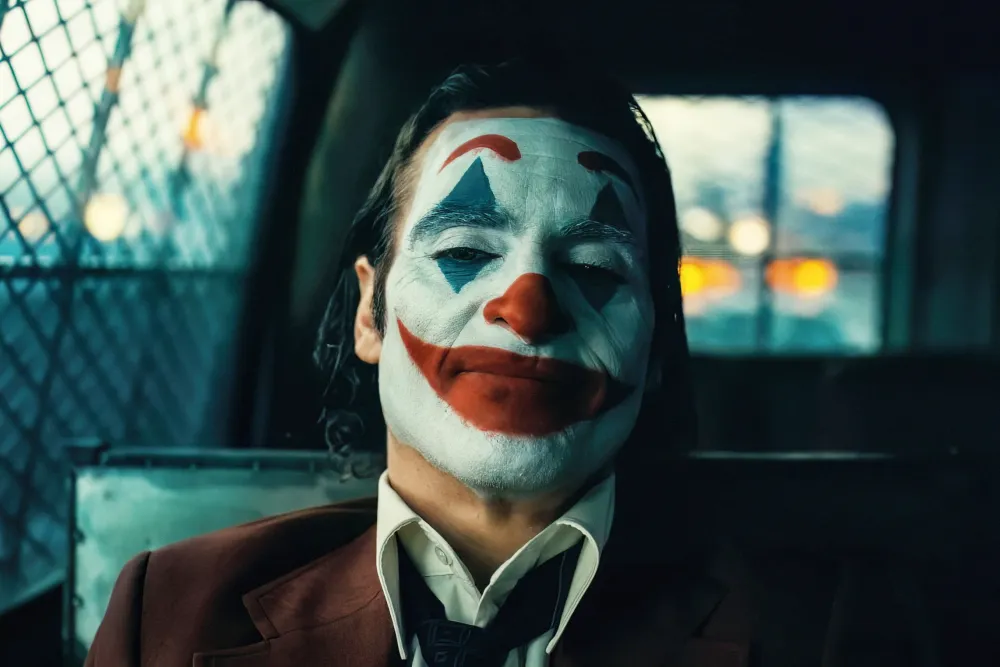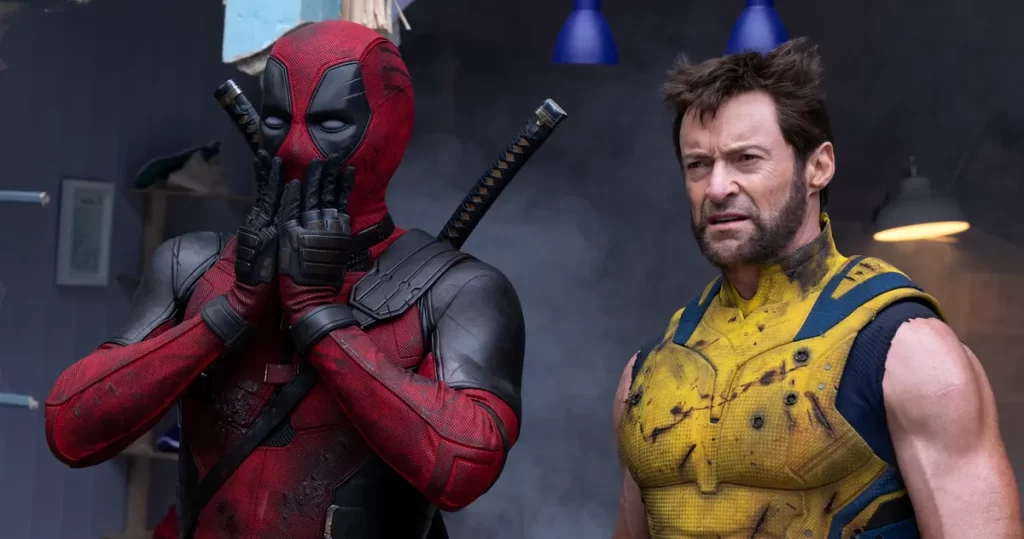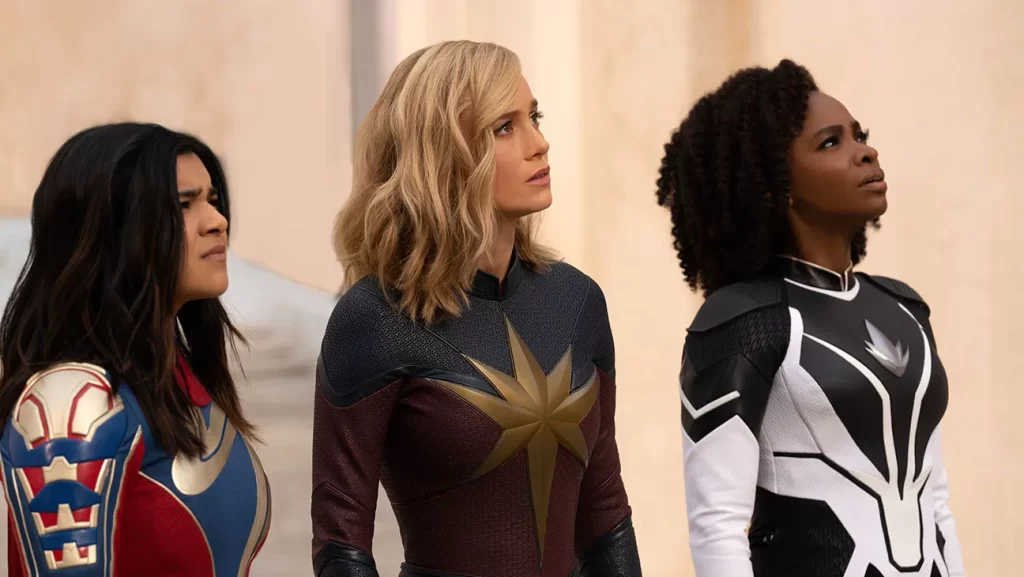Thunderbolts: Avengers, Resembled
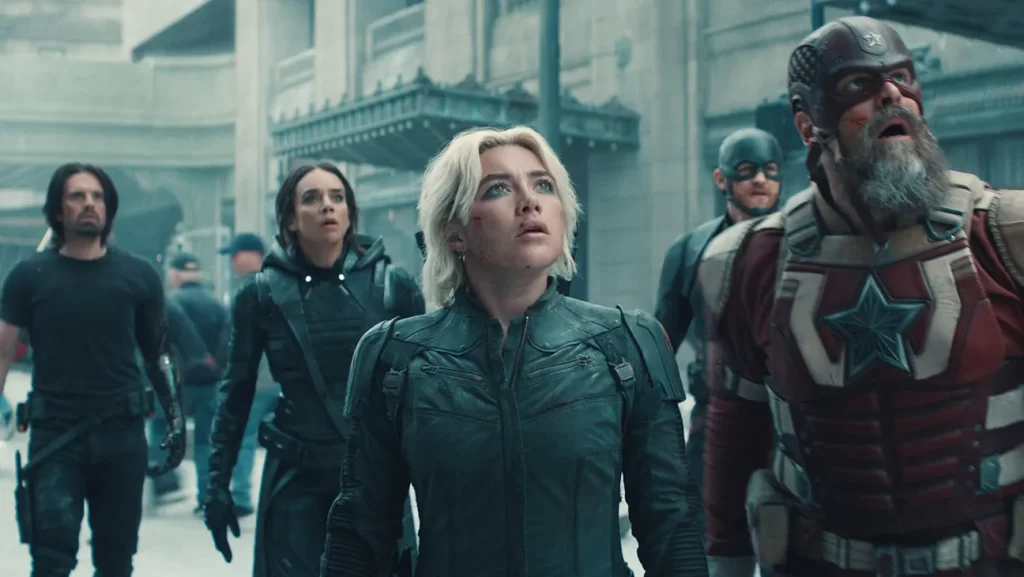
Yelena Belova is bored. She’s just elegantly parachuted into a secret laboratory in Kuala Lumpur, swiftly dispatching a crew of anonymous guards before overpowering a hapless scientist so that she can bypass the facility’s facial-recognition security and retrieve… forget it, it doesn’t matter. The point is that she’s done this sort of thing before. To a layman, such strenuous effort may sound exciting, but for Yelena, it’s just another day at the superhero-adjacent office. She needs something fulfilling, something inspiring, something new.
Thunderbolts is the 36th(!) installment in the Marvel Cinematic Universe, and the key to its moderate success is its understanding of Yelena’s self-described ennui. The MCU is no longer the global box-office behemoth it once was, in part because there are only so many times self-important men in metallic suits and spandex can save the world from imminent catastrophe. Thunderbolts, directed by Jake Schreier from a screenplay by Eric Pearson and Joanna Calo, is not a great movie; it remains overly reliant on franchise mythology, and its storytelling is a little choppy. But it’s an appealing sit—not just for its welcome lightness of tone, but for its willingness to shift away from standard-issue heroes and toward more colorful, esoteric characters. Specifically, it’s about a bunch of losers. Read More

